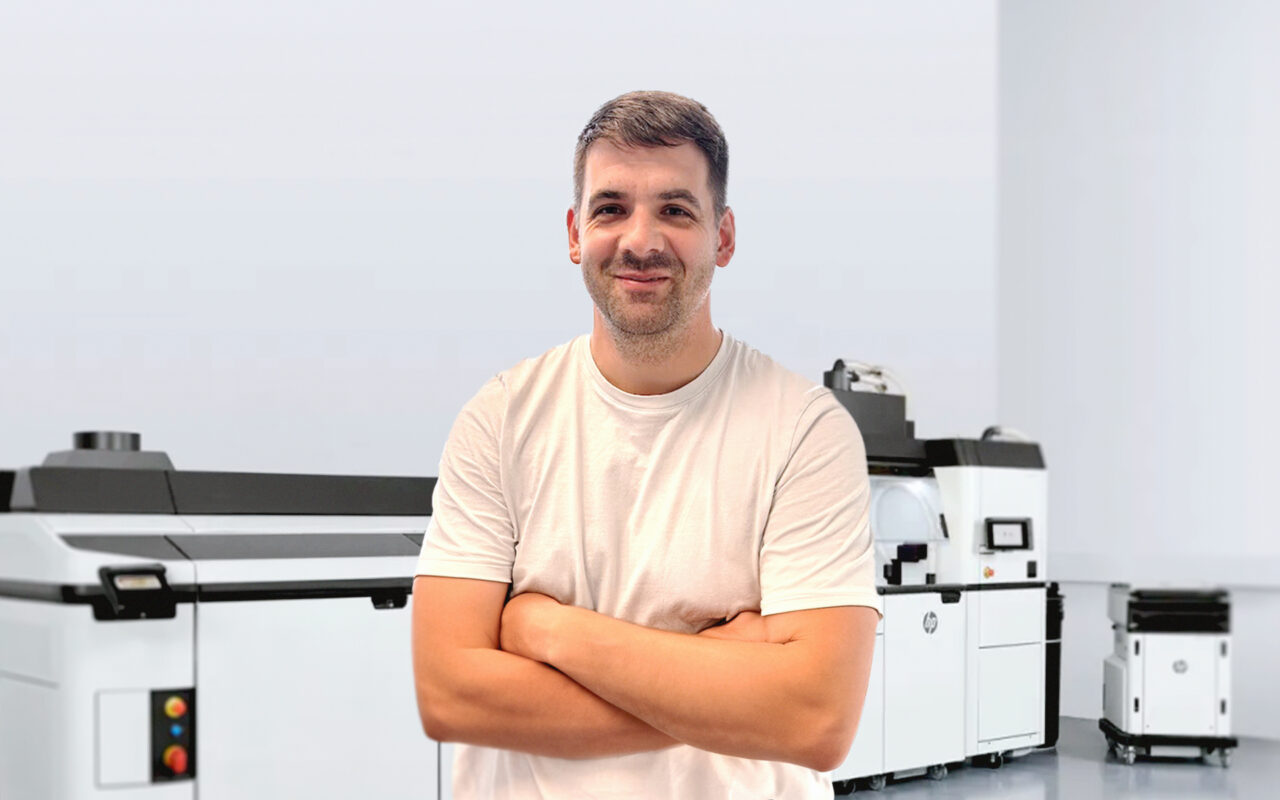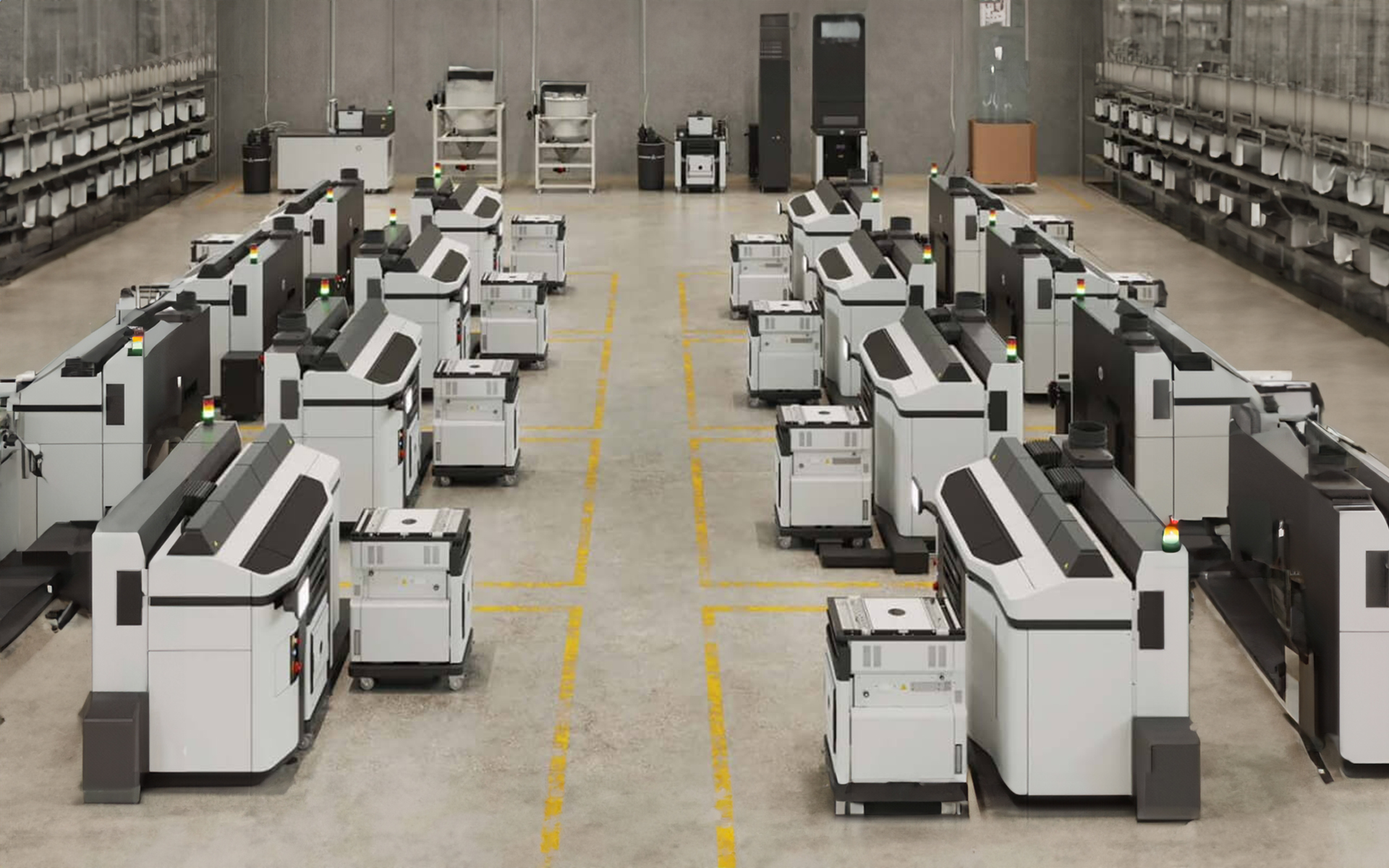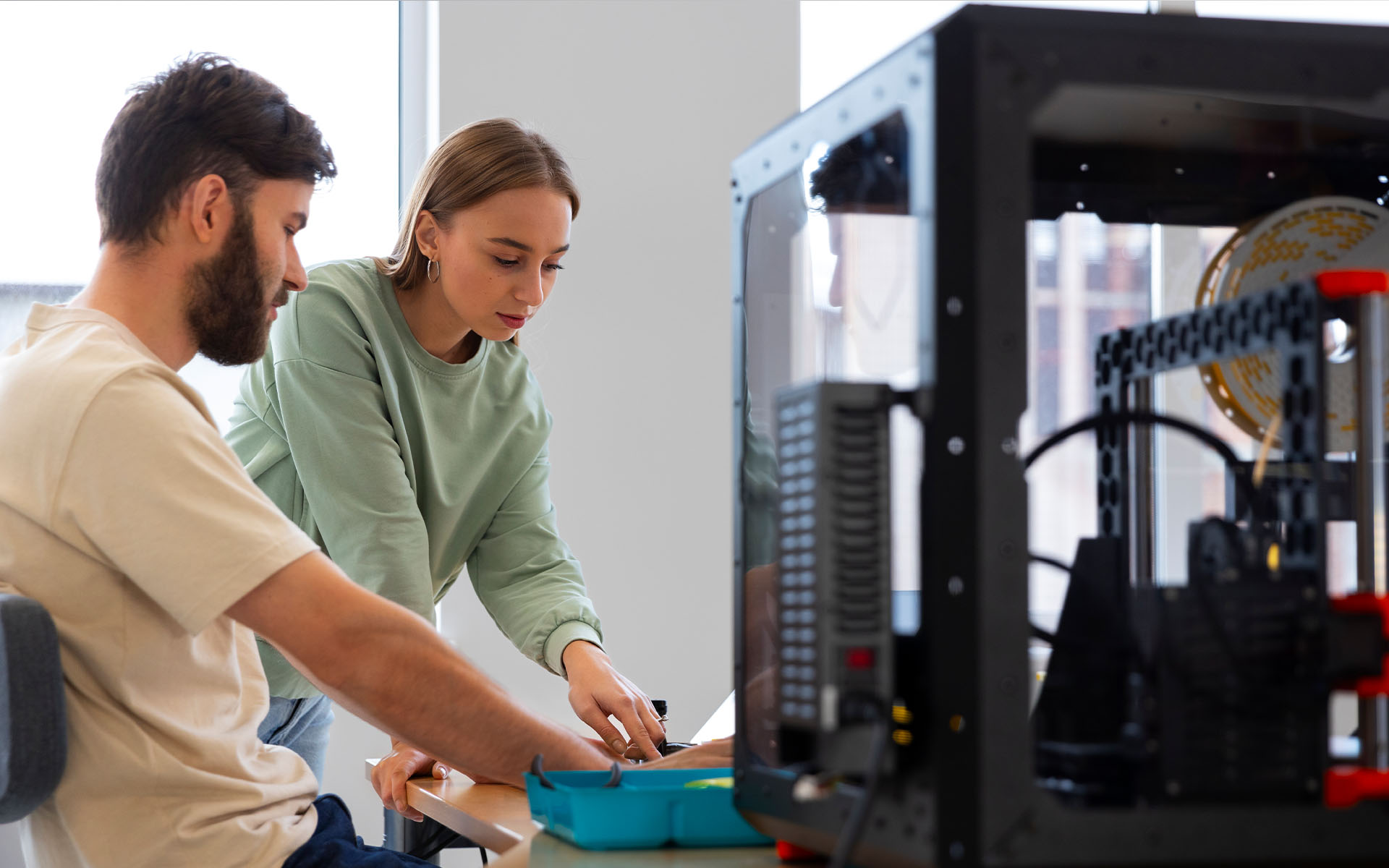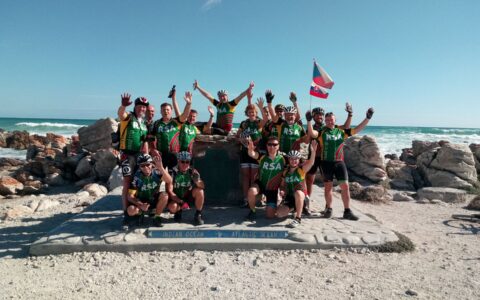Ladislav Cermak is the type of person who can solve almost anything at 3Dees. Whether it is marketing, sales, or order management. Ladislav has everything under his thumb. In our interview, he reveals what he enjoys about his extensive job. How technology helps him keep the company on track. And why work-life balance is essential to him.

Mr. Cermak, you started your journey at 3Dees as a marketing specialist. You are now much more than that. How would you describe your current role in the company?
Sometimes, I call myself a “universal slave” because I do what the company needs at the moment. I started as a marketer but gradually got involved in sales, business process management, and other areas. If there’s no one to do the job, it often ends up with me.
I’ve always been more of a person who can understand something quickly and follow it through. Though I’m not a specialist in a particular area. This broad focus suits me. I can’t imagine doing just one thing all day.
It may sound chaotic, but I manage it by dividing tasks and setting priorities. One day, I write an article; the next day, I go to a customer, and then I deal with, for example, ISO certification. The fact that I do something different each time keeps my work from being monotonous.
What are the challenges of such an extensive job? And how do you manage to balance the different tasks?
One of the biggest challenges is to manage the volume of diverse tasks and keep them in order. The work comes at me from all sides, but I like to keep things under control.
When I started, I tended to handle everything myself. Once, when I was in charge of some Excel spreadsheets, I struggled for days on my own instead of asking someone for help.
Later, I realized it was okay to ask for help. My boss once told me, “Why are you struggling on your own? We’re here to help each other.” This saved me a lot of time and made my work more efficient.
Work-Life Balance
In addition to an extensive job, you also try to keep a balance between work, personal life, and leisure.
That was a challenge for me. I tended to immerse myself in my work and ignore everything else, which led me to not have time for my family or myself. But gradually, I was finding my balance.
A significant part in this plays track cycling, which I practice. I’m kind of a “cycling enthusiast” because sport keeps me physically and mentally fit.
I obsessed over work and thought I would achieve something with this approach. Eventually, I realized that it wouldn’t work in the long run without balance. When I feel miserable, it means I haven’t rested enough, or I’ve neglected sports.
How important do you think it is to find the balance for long-term success and satisfaction at work?
Crucial. When I was focusing just on work, it was exhausting. It wasn't until I realized that I needed to take time for myself and my loved ones. That I became more productive and satisfied at work.
It is essential to know when it's time to work and when it's time to rest. And to family, I always try to be present, even though it doesn't mean I'm home every spare moment. Having time for myself and sport is equally important for me to stay balanced.

The Journey to 3Dees and Personal Values
What brought you to the 3Dees and to work with 3D printing? Was it your passion for technology or something else?
Working for 3Dees kind of just fell into my lap. I’ve worked with the owners for over 20 years. I started working for them while I was still in school, including project management and European subsidies. When the company began to navigate to 3D printing, I had no technical background, but I gradually got into it.
I have always been more of a pragmatist than a technical enthusiast. I still say it came my way by accident, but years later, it’s like the back of my hand. I see a lot of potential in 3D printing.
You are skeptical of modern technologies. How do your personal values translate into your work at 3Dees?
I'm skeptical of some modern technologies. For example, applications that track my sleep or collect data about my physical activity seem useless to me. I don't need an application to tell me how I slept; my body tells me that when I wake up.
We use technologies that make sense to us. I’ve always tried to let technology help us, not control us. Don’t go crazy with every new application; focus on what helps and makes sense—I think that’s the key.
3Dees, eWay-CRM, and the Future of 3D Print
Let’s move to the 3Dees company itself. How does your company differ from its competitors on the market?
3Dees focuses on industrial 3D prints designed for professional use. Our printers are robust devices that cost from a million crowns upwards, not the small desktop models you know from home. Our target group is companies that need precise and reliable production technology.
We specialize in technologies that enable the creation of complex shapes and structures. Which is crucial in most industrial sectors. People often say, “Yeah, we have a 3D printer from Prusa at home, too.” Then, I must explain that what we do is on a different level. But it’s great that people now at least know what 3D printing is.
What tools help you manage your company and business processes?
We have been working with the eWay-CRM for a long time. We started using it sometime in 2011 or 2012. We use it for order management. This is crucial because we print to order and need to keep track of dozens of different orders simultaneously. We also use it to track business opportunities and the work of external “callers,” who bring in new clients for us.
The eWay-CRM enables us to manage business cases and contracts effectively. For example, when someone calls us with complaints, we can check the system immediately. Find the whole communication, and deal with it right then and there.

How does eWay help you in your daily practice? How does the system influence your work processes?
The eWay-CRM allows us to keep track of our information and respond quickly to our customers’ needs. For example, when someone calls us with a complaint or query, we can immediately return to their order. Find all the communication and pick up where we left off. Without such a system, it would be much harder.
We also use eWay-CRM to record all our business opportunities. It allows us to keep track of what we are working on and better plan the next steps. 
The system has become an essential tool for managing our company. Before we implemented it, I was a little worried that it would be complicated to use. But now I can’t imagine doing without it.
Collaboration with Universities and Young Talents
You also collaborate with universities. How does the collaboration contribute to 3D print development and your company?
Collaboration with universities is essential for us. It helps us bring young talents into the industry who have already worked with 3D printing in school. These students often bring innovative ideas and approaches that help us innovate.
Naturally, older workers are sometimes less willing to embrace recent technologies. But thanks to young people, that attitude is gradually changing. I sometimes say to myself that you can’t change people's habits. But the younger ones grew up with technology. They probably already played Minecraft or had a 3D printer at home.
What is the difference between younger and older workers when adopting modern technologies?
The younger generation is much more open to new technologies. Many of them grew up with 3D printing, even as children playing with Prusa’s printers or similar devices. They often have great ideas about how to use recent technology. However, older workers have been doing their jobs in the same way for many years, so they may be more conservative and cautious.
It is important for us that these two generations work together and learn from each other. Many times, we have had a student come to a company with a new idea. And then the company invites us to come and give a presentation or help them with implementation.

Personal Approach to Innovation and Technology
How do you approach innovations in your work? Do you try to promote new approaches and technologies, or stick to tried and tested methods?
I’m not the type who would try all recent technologies just because they’re popular. Instead, I try to understand its point and how it can help us specifically. With AI, for example, I look for the possibilities it has. But I wouldn’t immediately implement it into everyday practice if I don’t see a concrete benefit.
I believe that technology should serve people, not the other way around. That’s why I’d rather learn about the real benefits first than dive in headfirst.
You mentioned that you prefer personal contact to technology, which replaces human interaction. How do you specifically apply this in your work?
Yeah, the personal touch is essential for me. I always prefer talking to a colleague or customer in person before communicating via email or app.
While we use various project management tools, I still think it’s important to have human contact. And handle things in person whenever possible. Technology is great, but it shouldn’t replace what’s unique about human collaboration.
For example, if I need to talk through something with a colleague sitting next to me in the office. I’d rather talk to them than send them an assignment through the application. I find it more natural and effective that way.

Career Challenges and Personal Growth
What was your biggest professional challenge, and how did you overcome it?
The biggest professional challenge for me was learning to ask for help. When I first started, I tended to figure things out on my own, even though it took me a lot of time and energy.
Over time, though, I learned that it’s okay to ask for advice or help from colleagues. It saved me a lot of time and allowed me to learn faster. I had to learn that it was better to ask for help than worry about it for hours or days on my own.
How did your superiors shape you? You discussed having worked with them since you were young.
My superiors, especially one of the company owners, became not only bosses but also mentors for me. I started working for them when I was 21, and they shaped me both professionally and humanly. Our relationship is based on trust and respect.
Working for them for so long has given me the opportunity to grow and develop, which is valuable to me. When I started, I was a young kid who didn’t know much, and they gave me a chance to work my way up. We’re more like partners now, although I realize they’re my bosses.
What advice would you give to younger colleagues starting in the industry?
I would advise them to achieve something by themselves before they try to get something from others. It is important to show that you can do something before making requests. I would also advise them not to be afraid to ask for help. No one is perfect, and it is better to ask for advice than try to figure everything out on your own.
Most importantly, while work is important, remember to find time for yourself and what you enjoy. Without that, you can't function in the long term.











